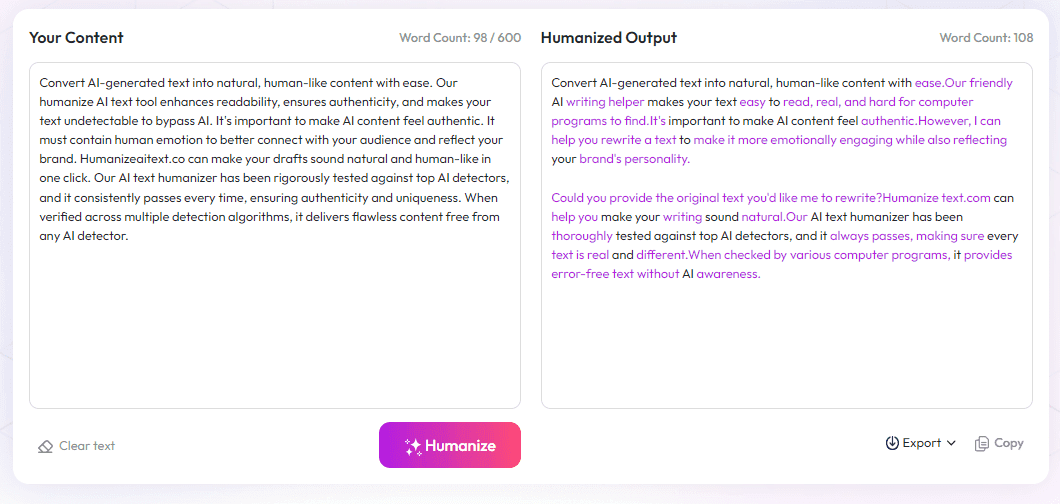Table of Contents
Are you tired of feeling like your writing time is all over the place? Maybe you’ve tried to set goals but end up drifting off or losing track. If that sounds familiar, don't worry—you’re not alone. Keep reading, and I’ll show you how a simple time blocking planner can help you stay organized and make the most of each writing session.
By the end, you'll have a clear idea of how to set up your own planner, choose what works best for you, and get started quickly. Stick around for some easy tips and tools that can turn your writing routine into a more focused, stress-free experience.
Let's get your writing flow on track with straightforward strategies and handy tools—no complicated setups needed.
Key Takeaways
Key Takeaways
- A time blocking planner helps organize your writing by scheduling specific periods for different tasks, making it easier to stay focused and avoid distractions.
- Using a planner or digital calendar creates routines, protects your writing time, and increases productivity by reducing interruptions and procrastination.
- Start small with short blocks, set clear boundaries, and be flexible—reschedule if things change to keep your routine consistent.
- Track your progress to see what works best, and adjust your schedule based on when you’re most focused to improve results.
- Sharing goals with others or joining writing groups adds accountability, encouraging you to stick to your schedule.
- Make time blocking enjoyable by varying your environment, setting realistic goals, and rewarding milestones to keep motivation high.

A time blocking planner for writers is a simple yet powerful tool that helps organize your writing day by scheduling specific blocks of time for different tasks. Instead of leaving your productivity to chance, a time blocking system lets you allocate dedicated periods for writing, editing, research, and breaks. This method makes it easier to stay focused, avoid distractions, and get more done in less time.
Did you know that 82% of people don’t use any structured time management system? That’s a lot of potential productivity sitting on the table. For writers, especially, this can mean losing precious hours to interruptions and procrastination. Time blocking can help flip this around. When you assign specific times for writing sessions, you create a routine that your brain comes to expect, making it easier to dive in without hesitation.
One of the key benefits is that it protects your focus. Knowledge workers spend around 88% of their workweek communicating—emails, meetings, chats—which fragments their focus. By setting aside clear blocks for writing, you push those interruptions aside and create your own “do not disturb” periods. This can be as short as 30-minute sessions or longer, depending on your needs and schedule.
For example, if you work as a freelancer or a student, you might find that dedicating mornings to your writing projects and afternoons to research helps your brain stay in the zone. Plus, task batching—grouping similar activities into one block—reduces the time lost switching gears and keeps you in a flow.
Using a dedicated planner or digital calendar, like Google Calendar or tools such as Reclaim.ai, makes it easy to stick to your schedule. These tools send reminders and help visualize your day, which boosts your commitment and reduces the chances of skipping your writing sessions.
It’s striking how 75.5% of students struggle with procrastination, and part of the solution lies in structuring your time. Block out a specific 45-minute session today, and see how much closer you get to that word count or project milestone. Once you see results, it’s hard to go back to unstructured work habits.
Time blocking not only keeps you accountable but also creates a habit that turns writing into a daily practice. Even if your schedule is hectic, setting aside focused slots helps turn writing from a sporadic activity into a consistent part of your routine. To get started, choose a simple planner or digital tool, set fixed times for your sessions, and stick to them. Like any new habit, the key is consistency.

7. Overcome Common Obstacles When Implementing Time Blocking
Even with a solid plan, writers often face hurdles like unexpected distractions or snoozing alarms.
To handle interruptions, set clear boundaries with others—let them know your designated writing times are off-limits.
If procrastination hits, try starting with just five-minute sprints to break the inertia and build momentum.
Flexibility helps, too—if a scheduled block gets disrupted, reschedule rather than abandon it, so your routine stays intact.
Remember, it’s normal to slip up; the key is to get back on track without guilt trip-ing yourself.
8. Track Your Progress and Adjust Your Schedule
Keeping tabs on what you accomplish during your blocks helps you see what’s working and what isn’t.
Use simple tools like a habit tracker or a journal to note your daily word counts or completed sections.
If you notice certain time slots are consistently unproductive, try shifting your schedule—maybe you’re a morning person or night owl.
Don’t be afraid to experiment until you discover flow periods when your focus peaks.
Regularly reviewing your schedule will help you refine your routine and keep your writing goals within reach.
9. Build Accountability Through Community and Support
Having someone to share your goals with can boost your commitment and keep you honest.
Join writing groups or accountability circles—these can be online forums or local meetups—where members motivate each other.
Sharing your progress and setbacks creates a sense of responsibility that encourages sticking to your blocks.
Some writers find setting up weekly check-ins with a friend or mentor helps maintain consistency.
Even commenting on your goals on social media can generate a little extra pressure to follow through.
10. Make Time Blocking Fun and Sustainable
Adjust your routine so it feels good rather than like a chore—reward yourself for hitting milestones.
Mix things up: vary your writing environment or try different types of prompts to keep things fresh.
Set realistic goals—like aiming for three focused sessions a week rather than daily if that feels overwhelming.
Build in breaks and fun activities between blocks to recharge your energy.
The more you enjoy your routine, the more likely you are to keep it long term and see real progress.
FAQs
A time blocking planner helps allocate specific periods for writing, reducing distractions and increasing focus. It encourages consistency, helps manage writing pressure, and makes it easier to track progress over time.
Set specific, achievable objectives for each session, like completing a chapter or refining a section. Clear goals help maintain focus and provide a sense of accomplishment after each writing period.
Choose a planner that suits your style—digital apps for flexibility or paper planners for tactile satisfaction. The best option is one that motivates you to stick with your writing schedule regularly.



